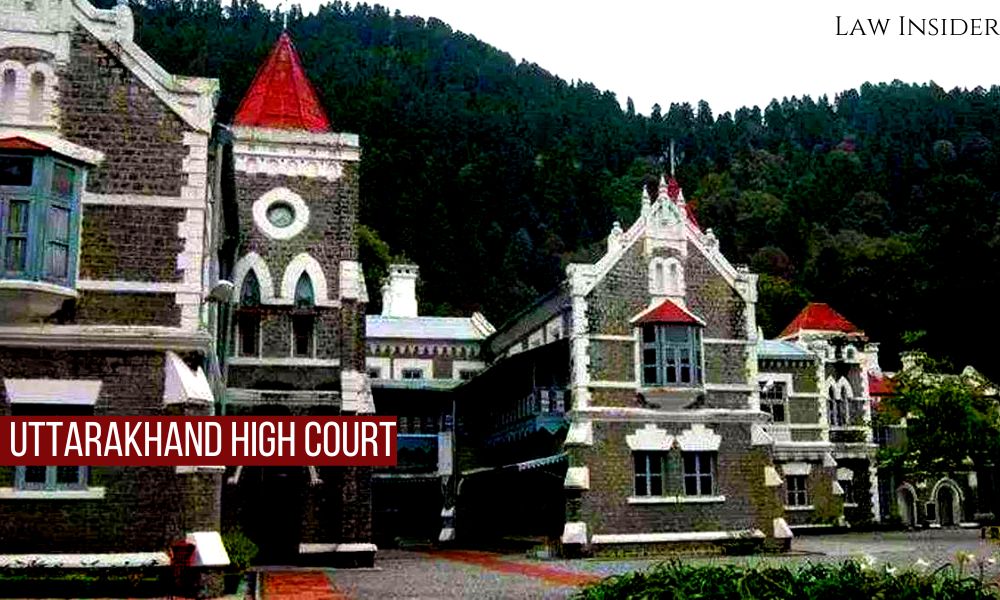Sakina Tashrifwala
Published on: October 18, 2022 at 19:31 IST
The Uttarakhand High Court has ordered that many ad hoc employees of the legislative assembly continue to work and be paid as before.
However, in his ruling dated October 15, Justice Manoj Kumar Tiwari stated that the competent authority is free to begin the process of selection for normal appointment to all vacant offices, including the positions held by petitioners.
“Petitioners will not claim any equity on the strength of this order, and service rendered on the strength of this order will not create any new right in their favour, including that of regular appointment;”
“However, it shall be open to petitioners who meet all eligibility conditions to participate in the selection for regular appointment, when initiated by the Competent Authority, and their participation in the selection will be without prejudice to their rights a priori.”
The order was issued in a batch of petitions contesting the Deputy Secretary, Uttarakhand Vidhan Secretariat’s orders terminating the petitioners’ services with immediate effect. Their services were terminated in the public interest, according to the directives issued last month.
Senior counsel Devadatt Kamat, Rajesh Inamdar, A.S. Rawat, and K.P. Upadhyaya previously represented the petitioners, arguing that the majority of the petitioners were appointed in 2016, and that at the time of their ad hoc appointment, they met all of the qualifications for permanent appointment to their particular jobs.
It was claimed that the petitioners’ job and performance are above board, and that no one has complained about their behaviour.
The court was informed that the ad hoc appointments in the Vidhan Sabha had been challenged by a public interest litigant in 2016, and that the Vidhan Sabha had defended the engagements in response to that PIL.
It was suggested that the Secretariat could no longer adopt a divergent position.
A division bench, while disposing of the PIL on 26.06.2018, directed the authorities to verify which of the ad hoc appointees are not educationally qualified, and the services of only those who were not qualified were to be terminated, the court was told, adding that, however, the services of all ad hoc employees have been terminated without undertaking the exercise.
It was also contended that the termination orders “entail civil and bad repercussions” and that no basis for terminating petitioners’ service had been assigned.
The court was also informed that no notice or opportunity for a hearing was provided to the ad hoc staff prior to taking such dramatic step.
In a counter-affidavit, the respondents told the court that they received complaints about ad hoc appointments and that the Speaker formed an Expert Committee on September 3, which delivered its findings on September 20.
“The counter-affidavit, however, is silent addressing any deficiencies, if any, in the petitioners’ work, conduct, and performance,” the court noted.
Observing that the counter-affidavit reveals that the services of the ad-hoc employees were terminated because they were engaged without following the rules, the court stated that it finds substance in the petitioners’ contention that Rules lay down the procedure for regular appointment and no procedure is prescribed for ad-hoc appointment, so termination solely on the basis of non-observance of the procedure provided in the rules would be unjust.
“The relevant Service Rules authorise ad hoc appointments, as decided by the Division Bench of this Court; nonetheless, it is also undisputed that petitioners were appointed on an ad hoc basis, without any selection,” it added.
Observing that the termination orders do not state a reason, the court stated that it is arguable whether the reason stated in the counter-affidavit can be considered in determining the legitimacy of the termination orders.
“Similarly, whether petitioners were entitled to a hearing in the matter is likewise a subject that falls for discussion in these circumstances,” it said, adding that such matters require attention.
The court set the case for hearing on December 19 and suspended the petitioners’ termination orders, giving the respondents four weeks to file counter-affidavits in other writ petitions.
It also stated that the relevant authorities will be free to carry out the exercise in accordance with the division bench order.
“Each petitioner shall also give undertaking by filing affidavit before the Competent Authority in Vidhan Sabha Secretariat that they will abide by all orders issued by superior authorities;”
“They will serve the organisation with utmost sincerity, honesty, and dedication and they will not divulge any official information to unauthorised person; they will never break the discipline nor cause disturbance in Vidhan Sabha; and they will not create hindrance,” Justice Tiwari mentioned.

